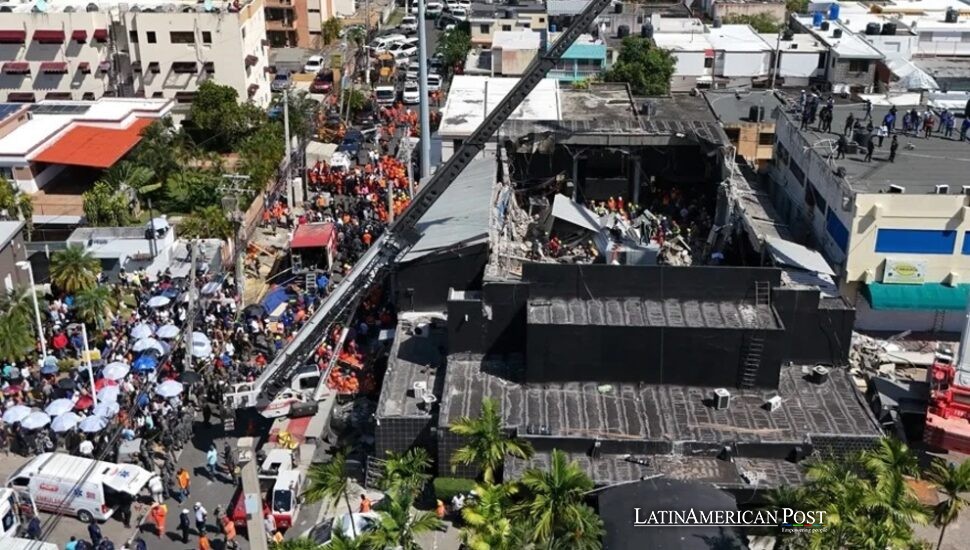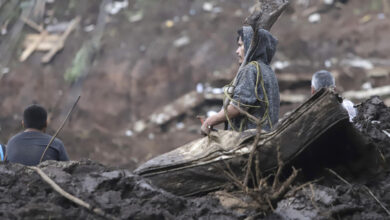Dominican Jet Set Collapse: Mourning, Resilience, and Unity

The collapse of the Jet Set nightclub in Santo Domingo has sent shockwaves across the Dominican Republic, claiming more than one hundred lives. Among the victims was Governor Nelsy Milagros Cruz Martínez, who alerted President Luis Abinader moments before dying.
The Tragedy That Shook a Nation
The late-night collapse of the iconic Jet Set nightclub in Santo Domingo has left the Dominican Republic reeling in sorrow. Once a bustling venue for merengue and other vibrant musical traditions, Jet Set was reduced to a heap of twisted metal and rubble within seconds. What started as a festive evening turned into one of the country’s most devastating disasters in recent memory, prompting urgent calls for answers and accountability.
Eyewitnesses recall an otherwise normal night of revelry transformed into chaos when the club’s ceiling suddenly gave way. The venue, widely considered a pillar of the Dominican Republic’s nightlife scene, was reportedly packed with patrons eager to dance to the sounds of beloved merengue performer Rubby Pérez, who was in the midst of his set when the roof collapsed. Moments later, the entire structure fell silent, replaced by the shouts of survivors and the wail of emergency sirens converging at the scene.
According to preliminary figures from the country’s emergency management authorities, the toll of the tragedy has climbed to at least 113 fatalities, with many more injured or missing. Rescue teams swiftly descended on the site, engaging in a perilous operation under bright floodlights and the rumble of heavy machinery. Emergency responders continue to comb through the wreckage, hoping against all odds to find those still trapped. Family members and friends gather anxiously, checking hospitals and waiting for any word of survivors.
In a move that underscores the gravity of this catastrophe, the president of the Dominican Republic, Luis Abinader, immediately declared three days of official mourning. Flags across military installations and public buildings have been lowered to half-staff. Meanwhile, local communities are stepping up to provide help, ranging from offering blood donations to cooking meals for first responders at the site. Though it remains unclear whether structural flaws, overcrowding, or a combination of factors led to the collapse, grief-stricken citizens find unity in their call for a thorough investigation.
The Faces Behind the Headlines
This unimaginable loss claimed many individuals whose stories and contributions highlighted the Dominican Republic’s rich cultural tapestry. Among the most prominent was Governor Nelsy Milagros Cruz Martínez, who presided over Monte Cristi province. Cruz Martínez, only 41 years old, was known for her commitment to community development and social services in her region. Notably, she was also the sister of former Major League Baseball player Nelson Cruz, a local hero whose philanthropic efforts have long resonated with Dominicans on and off the island.
Tragically, Cruz Martínez found herself among the rubble when the nightclub’s ceiling gave way. Despite her critical injuries, she managed to contact President Abinader directly from the wreckage, warning him of the catastrophe that had unfolded. Shortly thereafter, she was rushed to the Hospital General de la Plaza de la Salud, where doctors battled to save her life. Hemodynamic instability, massive pelvic trauma, and a large hematoma ultimately proved too severe to overcome. Her passing has cast a shadow of sorrow over Monte Cristi, where an institutional tribute at the provincial governor’s office has been arranged. Mourners will then accompany her remains to her hometown of Las Matas de Santa Cruz, where she will be laid to rest.
Equally devastating for many was the loss of legendary merengue singer Rubby Pérez. He was the featured act on stage that fateful night. Known for hits celebrated across Latin America, Pérez represented the passionate heartbeat of Dominican culture. Initial reports of his fate were conflicting—some media outlets prematurely pronounced him missing, while official statements refrained from confirming his death. Rescue workers eventually discovered his body in the early hours following the collapse, ending any lingering hope that he might have survived.
Further compounding the tragedy, the accident also claimed the lives of former professional baseball figures Octavio Dotel and Tony Blanco. Both men had once brought pride to the Dominican Republic through their performances in Major League Baseball. Their presence at the Jet Set nightclub that night underscores the venue’s standing as a magnet for prominent local personalities. For families of the deceased, the sorrow is overwhelming. For the nation, the loss of such notable individuals underscores the depth of the tragedy and inflames calls for stricter safety measures at entertainment venues.
A Community United in Grief
In the days since the collapse, rescue efforts have become an around-the-clock endeavor, described by one official as operating “24 over 7.” More than 300 emergency workers, volunteers, and specialized units—accompanied by canine teams—are navigating treacherous piles of debris. Heavy machinery cranes away twisted metal, while frantic hopes remain pinned on locating any final survivors.
The magnitude of the event has transcended the Dominican Republic’s borders. Governments from El Salvador, Panama, and Cuba have conveyed their condolences and solidarity, a gesture that highlights the interconnected nature of Latin American communities. Calls, messages, and relief offers reflect a regional bond forged through cultural affinity and mutual support during crises.
On the ground, Dominicans have responded with an outpouring of empathy. Lines at hospitals for blood donations grow daily, and volunteers distribute food and drink to those toiling tirelessly in the rubble. Religious leaders of various faiths have gathered with families, providing spiritual counsel in moments marked by raw anguish. Public vigils illuminate the night sky as candles burn in tribute to lost loved ones. For many, these displays of compassion echo the nation’s heritage of resilience, faith, and unity in adversity.
While the full details of what caused the nightclub’s collapse are yet to be uncovered, mounting questions regarding building regulations, occupancy limits, and enforcement standards grow louder. Experts stress the importance of transparent investigations to guide the prevention of future disasters. Citizens, mourning and furious, demand accountability from owners, structural engineers, and local officials responsible for ensuring public safety. In a country where music and dance are quintessential expressions of national identity, the question remains: how do we ensure that these beloved cultural venues are secure places of joy rather than potential sites of tragedy?
Despite the heartbreak, the Dominican spirit endures. Families of victims lean on each other for comfort, local businesses donate resources to rescue crews, and the government promises tangible reforms to prevent another crisis. In a time of profound sorrow, the island’s close-knit communities stand side by side, demonstrating compassion and fellowship.
Also Read: Vanishing Clouds as Costa Rica’s Monteverde Fights Climate Threats
The heartbreak unleashed by the collapse of the Jet Set nightclub will not be forgotten. From the poignant final phone call of Governor Cruz Martínez to the tragic loss of cherished cultural icons, the nation is left to grapple with a catastrophe that robbed families of loved ones and cast a long shadow over Santo Domingo’s nightlife. Yet in the midst of devastation, an indomitable will to rebuild and safeguard the Dominican way of life emerges, offering a glimmer of hope for a future built on stronger foundations and a steadfast commitment to unity.





